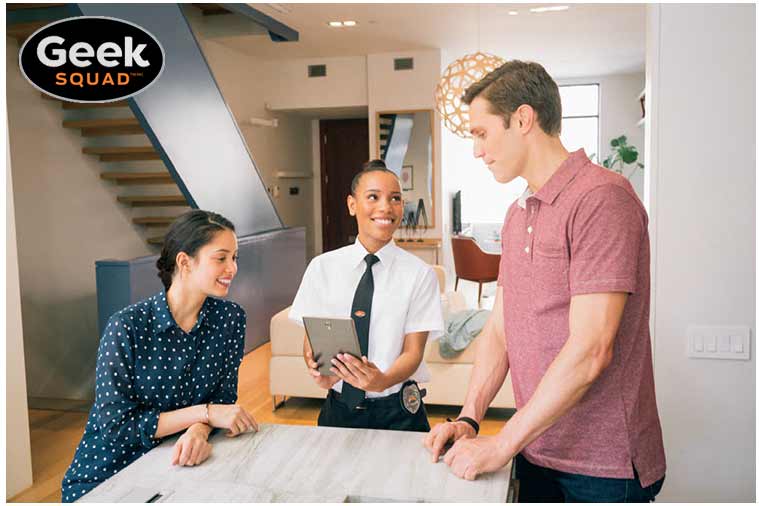
This October is the 13th annual National Cybersecurity Awareness Month. The need to protect yourself and what’s important to you online is more important than ever. Combating Cybercrime will be an ongoing work in progress for us all throughout our online lives. By teaching us, our parents, our kids, and our grandkids about the importance of online protection, we are helping to make our homes and our country a safer place. Months like this will help to raise awareness but the efforts to stay safe should be ongoing year round.

Understanding Cybersecurity
As recent as 20 years ago, the internet was a novelty to many people. Not many homes had internet connections and not many people had email addresses. Internet access has become cheaper and faster; it’s now a staple in our households. Nearly 89% of Canadians have internet access, with 80% of cell phone users having a smartphone. That’s nearly 33 million regular users. We access the internet at home, at work and even when we’re out and about. That is a lot of opportunity to be caught up in a potential vulnerability.
Cybercrime is what sours our internet experience. When we hear the word, we often think about hacking incidents like a recent Yahoo data breach that compromised the information of nearly 500 million accounts. We think about subtle phishing attempts for our financial information and or the Nigerian Prince calling to tell us he has 68 million dollars waiting for us.
The fact of the matter is, Cybercrime has an evolving face. Nowadays, it could be anything from online cyber bullying, social media and identity fraud or even software and hardware attacks.
Learn your role in preventing Cybercrime
We all use the internet and share information daily with our peers, so we can all help to reduce cybercrime. The first step is to ensure we know how to stay safe. There are many really great resources available in Canada. For example, our government has a website with very current resources about threats that exist online for adults, for kids—well for everyone, really—and great articles so you understand what actions online will keep you safe.
Also, at Best Buy we want you to thoroughly enjoy the products you purchase from us, so keeping you safe is very important to us. On our blog we regularly posts articles about cybersafety (I’ve added links to many of these at the end of this article). You can also get great advice from Geek Squad: our agents are on the frontlines of this battle, regularly fixing damage brought about by cybercrime. You can find get Geek Squad assistance in all of our stores and online. You can even request an in-home consultation to learn where your home might be vulnerable and how to keep your family as safe as possible.

Your role in Cyber Security Awareness
There is no one thing that shuts down or obliterates cyber security. Rather, the process of establishing your role in awareness is learning about ways to prevent yourself from falling victim to cybercrime. Here are a few ways for you to keep yourself safer online:
- Keep your software updated. Whether this is your computer’s anti-virus software, your phone’s operating system or even your browsers, be sure to keep your software up to date. If there are any security vulnerabilities in a current version that are exposed, the following updates help patch them up and help keep your browsing experience safer.
- Use additional hardware whenever possible. There are other hardware options out there that add extra layers of protection. You can purchase security keys, whether virtual or USB hardware. Companies like Blizzard, for example, have offered VPN (Virtual Private Network) authentication options for their gamers for almost 10 years. Cell phones, computers and some other mobile devices come with Biometric recognition which requires your fingerprint to unlock and access features.
- Make your passwords the hardest possible. Many websites now come with on the spot password difficulty recognition. This recognition provide you realtime validation about how difficult your password is to crack. Rather than a word or two connected together, think about some of the other things you can do to make your password as difficult as possible. Use numbers or special characters in lieu of letters. Consider full sentences. Most importantly, make sure it’s something that only you and you alone can know and remember. If you can’t, be sure that if you record it, it’s in a safe place away from your computer and where nobody else can find it.
- Safeguarding your finances. If you’re a regular online shopper, be sure that you’re only conducting business on websites with up to date security certificates and a secure connection. Even if you aren’t too online savvy, you can tell whether you’re on a secure server when the URL on your browser changes over to an https:// link. You may also see a padlock icon appear next to the URL to denote the presence of that secure link.
- Be careful what you connect to. Don’t just jump onto the first Wi-Fi network you see just because it’s open. While cell phone data can be expensive and it is always tempting to conserve it, it’s not as costly as the risks involved. Only connect to networks you feel safe connecting to.
- Be careful what you do online. Your identity is the most valuable thing you own. Be careful where your personal information goes and who you give it to you. Be mindful of what you’re doing at all times.
You also owe it to those around you to ensure that they are keeping themselves safe too. Teach your children, parents and peers about the values of secure online presence and how to keep themselves safe.
Always Be Careful to Think before you Click …
 Despite the presence of spam filters and junk mail folders, you may still get the odd email coming through preying on your personal information under the guise of a service you may have an account with. Whether it looks like it’s from your bank, eBay, PayPal or even Best Buy, be careful to look out for telltale signs that someone is attempting to steal your identity. No financial institutions will ask you for account numbers through these sorts of messages nor should you be providing any of this information through email.
Despite the presence of spam filters and junk mail folders, you may still get the odd email coming through preying on your personal information under the guise of a service you may have an account with. Whether it looks like it’s from your bank, eBay, PayPal or even Best Buy, be careful to look out for telltale signs that someone is attempting to steal your identity. No financial institutions will ask you for account numbers through these sorts of messages nor should you be providing any of this information through email.
Cyber Security Awareness is a responsibility that we all have to take seriously and preventing Cybercrime is something that we all need to have a hand in. By taking more time to educate yourself and others in awareness campaigns, we can all work together to help make our collective internet experiences safer and more enjoyable.




